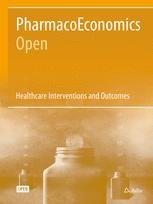The Challenge
Innovation in pharma is risky, slow, difficult and costly because of the bottleneck of clinical trials. Clinical trials dominate the time to bring new therapies to market
Conventional clinical trials produce inadequate data
Many measures are subjective, rather than objective
Many measures are qualitative, rather than quantitative
Data often lacks sensitivity
Data is not complete, does not provide complete context
Data is not representative of meaningful changes in function in real-life
Conventional clinical trials are risky, slow, difficult and costly
Slow and difficult to recruit
Difficult to retain
Difficult to evaluate and ensure adherence
Up to 1 in 3 fail to produce the required data for effective decision-making
sample size too small
sampling frequency too slow
data lacks sensitivity, not accurate enough
data lacks context, incomplete
Clinical trials dominate the cost of bringing new therapies to market
70-75% of total costs
>$10s of millions for a typical trial
$billions spent for each new therapy
Clinical trials determine and dominate the time required to bring new therapies to market
typically takes 7- 10 years
significant ‘white space’ in elapsed time to process data for decision-making
“FDA approval requires real-life data associated with real-life function”
“The FDA prefers content that is more representative of daily life functioning”
“Data that represents meaningful change in how patients function in daily life [such as] a change in speech, eating and dressing”
Sources: FDA Guidance for Industry, November 2020, and Drug Development Tool 142 Letter of Intent Determination by FDA July 21, 2021
“The future of drug trials is better data and continuous monitoring”
“Digital technologies … can revolutionize the antiquated process of developing new drug therapies and can vastly improve how we collect, measure, and assess health data so that we can offer new treatments to patients without wasting valuable time and limited resources.”
“It’s time to apply … these technologies … built on machine learning and artificial intelligence … to drug development in order to more efficiently, frequently, and accurately gather and analyze data from trial participants”
“Payers value real-world evidence (RWE) for evidence gaps not filled by conventional clinical trials”
“RWE can provide high-quality data on long-term effectiveness and safety in real-world settings”
‘RWE can aid payers in making coverage decisions”
Source: Real-World Evidence: Bridging the Gaps in Evidence to Guide Payer Decisions, by Melissa Roberts and Gary Ferguson - 2021
Let’s Talk
Are you responsible for implementing digital technology to clinical trials in your organization?
Do you have a burning passion to transform how clinical trials are run?
Or just wicked smart and curious about what we are making?
Newsletter Sign Up
Stay involved with our latest developments.
Join Our Team
Interested in joining our team of skilled innovative individuals?




